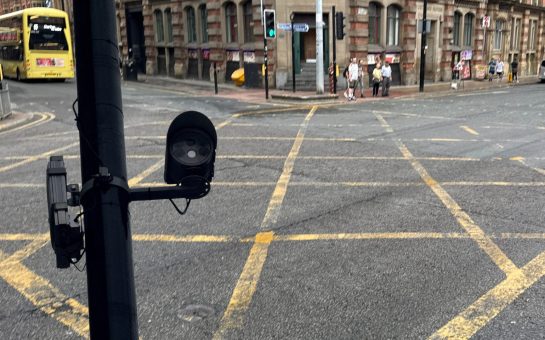An alarming number of children have been left at risk by Manchester City Council’s child protection services, which have been downgraded to ‘inadequate’ in a damning Ofsted report.
Government officials have given the local authority the lowest possible rating and criticised a shocking backlog of 486 children who were left at risk while waiting to be assessed by social services.
The adoption service has also been labelled ‘inadequate’ and the report claims that too many children, particularly those who are black or of ethnic minority, are waiting to be adopted in the city.
Mike Livingstone, Director of Children’s Services for Manchester City Council, said: “We fully accept that services for children in the city are not yet as good as we want them to be.
“Our absolute priority now, as it always has been, is to ensure the continued safety and well-being of children and young people in the city.
“However while we acknowledge that services need to improve, we are confident that children who are at risk of harm are properly protected.”
He added: “No evidence was found that young people are not safe in this city. Since the inspection this backlog has been eradicated for good. We have also reduced the number of cases that need to be dealt with by our social workers.”
Although it is claimed no children waiting to be assessed were harmed the inspectorate pointed out that merely by waiting children were ‘potentially at risk’.
In 2010, Services for Children in Manchester were judged to be adequate however, since this period Ofsted claim that ‘the standard of practice and management oversight has resulted in a reduction in the quality of social work services to children and young people.’
Child poverty is an issue that shows no signs of reducing in the city, and 36% of the local authority’s children are living in poverty.
Currently 35% of children need free school meals in primary school and 34% in secondary school which is considerably higher than the national average standing at 18% and 15% respectively.
There is also clearly a growing need for care services in the area as Manchester’s child population has been rising 2% each year for the past decade.
Children who were in need of a specialist care service went up from 5,263 in March last year to 5,349 in March this year and the number of children who were the subject of a protection plan went up over the last year from 736 to 920.
Mr Livingston added: “Where shortcomings were identified, these largely related to processes
rather than the work of frontline staff who are doing a difficult job well and have our full confidence.”
This stance however, somewhat contradicts that of the report which does criticise staff and claims that ‘reports are not always of an acceptable quality and lack sufficient analysis.
It has also been suggested that overwhelming caseloads mean that social workers are unable to spend time developing ‘meaningful relationships’ with children they seek to help.
Questions will be asked about the management of children’s services as the report claims that ‘robust’ management oversight is lacking to deal with these needs effectively.
The number of black and ethnic minority children placed for adoption is low in comparison to other backgrounds at 7%.
Of the children who are in care 35% do not attend good or better primary schools and neither do 52% of secondary school children in care which has an adverse effect on their long term prospects.
An inability to produce data in relation to the number of care leavers in employment, education or training was a serious cause for concern.
Damningly the inspection reported that the child sexual exploitation processes are not well embedded and that the council is failing to gather sufficient information to offer good analysis of activity on this kind.
The local authority’s response to children missing from home and care and foster houses are not sufficiently managed or evaluated to ensure that interventions are quick and make a meaningful impact.
Mr Livingston said: “We had identified these issues before the inspection and were already taking steps to address them, as recognised in some of the strengths highlighted in the report, but the pace of change needs to accelerate.
“Plans are already being implemented to ensure rapid improvement and these include reforming services to ensure that we help families and young people early, preventing the need for more intensive support further down the line.
“It must be remembered that this report is not simply about council services but children’s services in the city as a whole.
“Our partner agencies, including Manchester Safeguarding Children’s Board, Greater Manchester Police, NHS partners and schools have a significant role to play in improvement. We’ve already set up a task force with them to address the issues raised in the report.”
Image courtesy of Nick Page, with thanks



